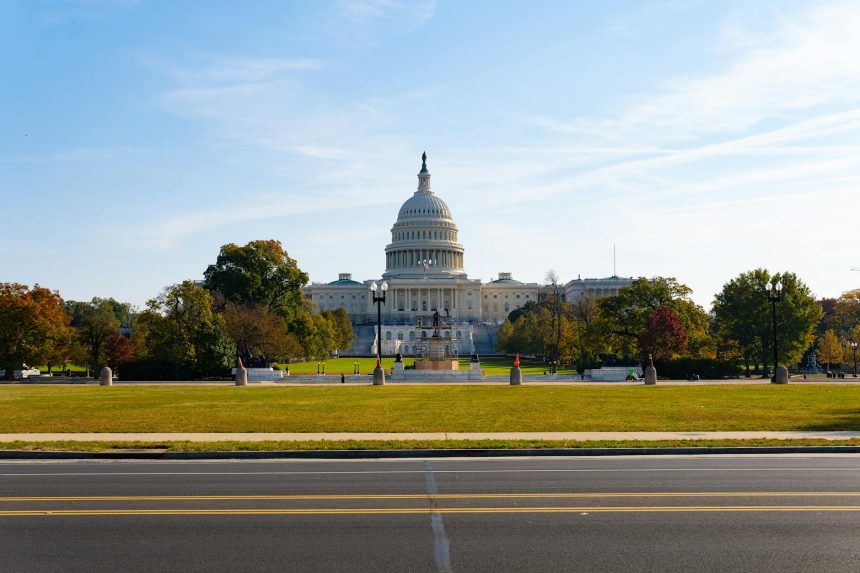federal-government-shutdown
Federal Government Shutdown: 7 Crucial Impacts & How to Prepare Now
When headlines declare a federal government shutdown, it’s natural to feel a mix of confusion and concern. What does this really mean for you, your family, and your community? Far from a mere political squabble, a federal government shutdown can ripple through the economy and daily life, affecting everything from national parks to crucial public services. This article dives deep into the tangible impacts and offers actionable advice on how to navigate these periods of uncertainty.
Understanding a Federal Government Shutdown
A federal government shutdown occurs when Congress fails to pass appropriation bills, which provide funding for government operations, or when the President vetoes them before the start of the new fiscal year (October 1). Without approved funding, non-essential government agencies must cease operations, and many federal employees are furloughed.
While often seen as a political stalemate, the consequences extend far beyond Washington D.C. Understanding the mechanics of a funding lapse is the first step towards comprehending its broader implications.
- **Causes of a Funding Lapse:** Typically, disagreements over budget priorities, spending levels, or specific policy riders (like health funding demands) can lead to a deadlock in Congress.
- **Historical Context:** Government shutdowns are not new. The U.S. has experienced several significant closures throughout its history, each with varying durations and impacts.
Key Impacts of a Federal Government Shutdown on Daily Life
The immediate effects of a government closure can be widespread, touching various aspects of public and private life. From travel plans to financial stability, the reach of a federal government shutdown is often underestimated.
1. Disruption to Federal Services and Agencies
Many public services that citizens rely on daily can face significant slowdowns or complete cessation. This includes a broad spectrum of federal operations.
- **National Parks and Museums:** Often close or operate with limited staff, impacting tourism and recreational activities.
- **Passport and Visa Processing:** Non-emergency applications may be delayed, affecting international travel plans for individuals and businesses.
- **Loan Applications (FHA, VA, USDA):** Processing of new federal loans or guarantees can grind to a halt, creating uncertainty for homebuyers and businesses.
- **Government Websites and Data:** Updates and maintenance for non-essential government websites may cease, limiting access to crucial information and online services.
- **Food Safety Inspections (Potentially):** While essential personnel continue, the capacity for routine inspections in certain sectors could be reduced, raising concerns.
2. Economic Ripple Effects and Uncertainty
Beyond direct service disruptions, a federal government shutdown can send shivers through the broader economy, impacting both individuals and markets.
- **Impact on Federal Workers’ Pay:** Hundreds of thousands of federal employees may be furloughed without pay, or required to work without immediate compensation, leading to significant financial strain for families.
- **Contractor Delays and Losses:** Federal contractors often face project suspensions and payment delays, causing financial hardship for businesses and their employees.
- **Consumer Confidence:** Prolonged shutdowns can erode consumer and business confidence, potentially leading to reduced spending and investment, further slowing economic activity.
3. Healthcare Services and Funding Challenges
While many critical health services are deemed “essential,” a shutdown can still create significant challenges, particularly concerning funding and administrative processes.
For instance, new enrollments or benefit processing for programs like Medicare and Medicaid might experience delays. Research grants from agencies like the National Institutes of Health (NIH) could be suspended, impacting ongoing medical studies and innovation.
4. Navigating Personal Finances During a Federal Government Shutdown
If you or someone you know is directly affected, proactive financial planning becomes paramount. Taking immediate steps can help mitigate potential hardship.
- **Emergency Funds:** Having a robust emergency savings account is crucial for covering essential expenses during periods of lost income.
- **Communication with Creditors:** If you anticipate difficulty making payments, proactively contact banks, landlords, and utility companies to discuss potential deferrals or payment plans.
Preparing for Future Government Closures: A Proactive Approach
While the exact timing and duration of a federal government shutdown are unpredictable, a proactive mindset can help individuals and businesses better weather the storm. Staying informed and prepared is your best defense against the uncertainty.
For a deeper dive into the legislative process and historical context of shutdowns, you can consult resources like the Congressional Research Service.
5. Essential vs. Non-Essential Services: What Stays Open?
Understanding which services are designated “essential” is key. Agencies responsible for national security, public safety, and critical health functions typically continue operations. However, the definition can sometimes be subject to interpretation and political negotiation. Generally, military personnel, air traffic controllers, and certain law enforcement functions remain active.
6. Monitoring Official Information Sources
During a federal government shutdown, misinformation can spread rapidly. Rely on official government websites (when operational), reputable news organizations, and agency-specific announcements for accurate updates. Sites like the Brookings Institution often provide insightful analyses.
7. Advocating for Stability: Your Role
Beyond personal preparation, citizens have a role in advocating for stable governance. Engaging with elected officials and staying informed about budget debates can contribute to a more predictable political landscape, potentially reducing the frequency and impact of future shutdowns.
A federal government shutdown is more than just a political headline; it’s an event with tangible impacts on countless lives. By understanding the potential disruptions, preparing your finances, and staying informed through reliable sources, you can better navigate these challenging periods. Proactive planning empowers you to protect yourself and your family from the immediate and long-term consequences of government closures.
Stay informed, stay prepared, and engage with your community to foster resilience.
Discover the 7 crucial impacts of a federal government shutdown on daily life, from disrupted services to economic uncertainty. Learn how to prepare and navigate these challenging periods effectively.
federal government building closed sign, government shutdown impact, capitol building with chain, budget crisis illustration
© 2025 thebossmind.com
Featured image provided by Pexels — photo by Suyash Mahar









